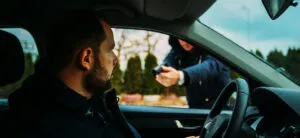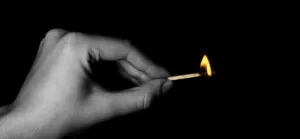California Manslaughter Lawyer – Penal Code 192 PC
How My Rights Law Can Help You With Your Manslaughter Charge
While manslaughter may be less severe than a murder crime because it was not intended, it can still follow you for the rest of your life, impairing your ability to get a job or rent a house. Therefore, it is essential that you hire an experienced violent crimes lawyer to represent you and protect your rights and interests. Call My Rights Law at (888) 702-8845 or contact us through our secure web form.
California divides homicide into two categories – murder and manslaughter. According to California law, manslaughter is a less severe crime and includes unplanned, the heat of passion killings and deaths caused by unintended negligent behavior. According to statista.com, in 2020, approximately 2,215 individuals were killed due to manslaughter.
- 1. Types Of Manslaughter Charges
- 2. Voluntary Manslaughter
- 3. Involuntary Manslaughter
- 4. Vehicular Manslaughter
- 5. Defenses To Manslaughter Charges
- 6. Self Defense Or Defense Of Others
- 7. Accidental Killing
- 8. Insanity Defense
- 9. Statute Of Limitations
- 10. My Rights Law California Manslaughter Lawyer
- 11. Hiring A California Criminal Defense Attorney
Types Of Manslaughter Charges
There are three common types of manslaughter that an individual may be charged with within California Penal Code 192, including:
- Voluntary Manslaughter,
- Involuntary Manslaughter,
- Vehicular Manslaughter.
Voluntary Manslaughter
In California, voluntary manslaughter occurs when a person kills someone willfully and deliberately, but there was no premeditation. Voluntary manslaughter can include the heat of passion killings; however, in some circumstances, passion killings may rise to the level of premeditated murder. For example, suppose someone comes home and finds their significant other cheating on them, and they pull out a gun and shoot their significant other immediately. That is voluntary manslaughter because it was in the heat of the moment, but killing was still their intent. However, if that person waits and kills their significant other a week later for cheating on them, it is no longer heat of passion because they had time to think about it and plan the killing.
Under California law, a voluntary manslaughter conviction will result in between three to eleven years in state prison with the possibility of parole.[1]
Involuntary Manslaughter
In California, involuntary manslaughter occurs when a person kills someone without malice or intent to kill, but it occurs due to conscious disregard for human life. Involuntary manslaughter can occur during the commission of a non-felonious unlawful act or a legal act that has a high risk of death or bodily injury. The defendant failed to act with caution. For example, suppose someone buys drugs and gives them to someone else, and that person dies. In that case, the individual who purchased and shared the drugs may be convicted of involuntary manslaughter because he acted with a conscious disregard for human life.
Under California law, an involuntary manslaughter conviction will result in between two to four years in prison.
Vehicular Manslaughter
In California, vehicular manslaughter occurs if a person kills someone while they are driving and –
- Perform an unlawful non-felonious maneuver;
- A lawful act that carries the risk of death, or
- Knowingly causing an accident for financial gain.
Vehicular manslaughter is what is known as a “wobbler.” A wobbler crime allows the prosecutor to use their discretion in charging someone with either a misdemeanor or felony. A suspect may be charged with either a misdemeanor or a felony for deaths resulting from vehicular manslaughter.
Under California law, because vehicular manslaughter is a wobbler, the penalty varies depending on the circumstance. For example, suppose someone is killed due to the defendant performing an unlawful non-felonious maneuver. The defendant may be sentenced to not more than one year in jail if they are charged with a misdemeanor or between two to six years in prison if they are charged with a felony.
If someone is killed due to a lawful act that carries the risk of death, the defendant may be sentenced to up to one year in jail and cannot be charged with a felony. However, if someone is killed because the defendant knowingly caused an accident for financial gain, they will be charged with a felony and receive between four to ten years in prison.
A typical example of causing an accident for financial gain is brake checking semi-trucks knowing they cannot brake fast enough to avoid an accident. Therefore, if the defendant cut off a semi and brake check them, causing them to tip over and kill someone, the defendant will be charged with felony vehicular manslaughter.
Defenses To Manslaughter Charges
There are some common defenses to manslaughter that a defense attorney may employ during a case. [2]Some of these defenses are easier to prove than others but include:
- Self-defense or defense of others.
- Accidental killing.
- The insanity defense.
Self Defense Or Defense Of Others
California law allows people to kill in self-defense or to defend another person. For these defenses to apply, the defendant must reasonably believe that they or someone else was in imminent danger of being killed, suffering great bodily harm, or being raped or robbed.
California also recognizes the imperfect self-defense doctrine, which means that even if the belief of imminent danger was unreasonable, their sentence may be reduced if their belief was honest. However, the charges will never be dropped under the imperfect self-defense doctrine.
Accidental Killing
An accidental killing occurs when the defendant has no criminal intent, is not acting negligently, and is not engaged in unlawful activity.[3]
Insanity Defense
Most people have heard of the insanity defense; however, it is only employed in approximately one percent of all cases in the United States, and in those one percent of cases, it is only successful twenty-five percent of the time.
In California, an individual can please “not guilty by reason of insanity.” [4]To prove insanity, the defendant has the burden of proving they killed because:
- They did not understand the nature of the act, or
- They could not distinguish between right and wrong.
For example, suppose an individual hallucinates that they are being chased. As a result, they are speeding to get away, and they cause an accident that kills someone. Because the defendant did not understand that their speeding was wrong in the situation, they may not be convicted of vehicular manslaughter.
Other violent offenses: Elder Abuse
Statute Of Limitations
A statute of limitations provides the maximum amount of time a charge may be brought after a committed crime varies depending on the crime. The statute of limitations for voluntary and involuntary manslaughter is three years in California. However, the statute of limitations for vehicular manslaughter is six years after the incident. The statute of limitations starts to run when the death occurred or when it was or should have reasonably been determined that the individual died due to manslaughter or murder.
My Rights Law California Manslaughter Lawyer
Manslaughter is the unlawful killing of another person. A charge of this nature is very serious and requires the help of a manslaughter attorney to defend. Although murder and manslaughter are both considered violent crimes, manslaughter isn’t considered murder because of a surrounding or mitigating circumstance, which a manslaughter criminal defense lawyer may help you establish. Manslaughter is usually the charge of the prosecution when the killer did not plan to kill.
Notably, manslaughter and murder are different when determining the defendant’s state of mind. The defendant’s state of mind when they kill defines the difference between murder and manslaughter charges. Murder usually requires malice, premeditation, and planning. Manslaughter is the killing of a human when the killer has a conscious disregard to human life (the killer’s conduct shows recklessness and/or criminal negligence).
Murder is usually reduced to a manslaughter charge because of mitigating factors and circumstances that surrounded the killing. The difference between manslaughter and murder can be subtle, but they both must be proven beyond a reasonable doubt for the defendant to be found guilty.
Voluntary manslaughter is an act of killing that would usually be defined as murder, but the killing was committed in response to an adequate provocation. If there was adequate provocation that resulted in the killing, the criminal charges are reduced from murder to voluntary manslaughter.[5] Involuntary manslaughter is when a person unintentionally kills another person due to a lack of care.
Hiring A California Criminal Defense Attorney
The consequences of manslaughter, regardless of what type, are severe. If you have been accused, it is essential that you hire an attorney who understands the legal system and how to protect your rights. My Rights Law has highly experienced criminal defense attorneys that have a proven track record of success. To schedule a free, confidential consultation, call (888) 702-8845 or reach out through our secure form.
FOOTNOTES
[1] California Penal Code 193 PC.
[2] CALCRIM 505.
[3] California Penal Code 26 PC.
[4] CALCRIM 3450.
[5] People v. Brooks (1986) 185 Cal.App.3d 687



















